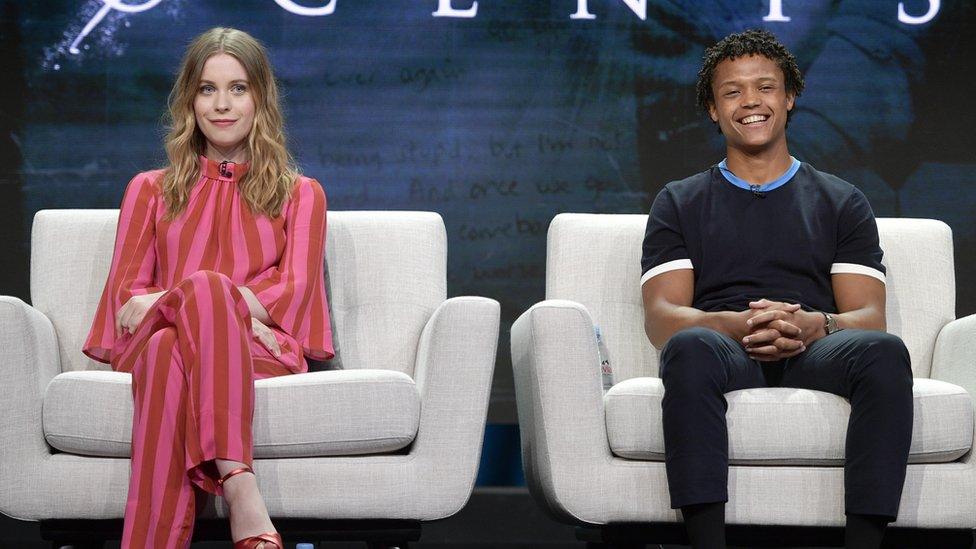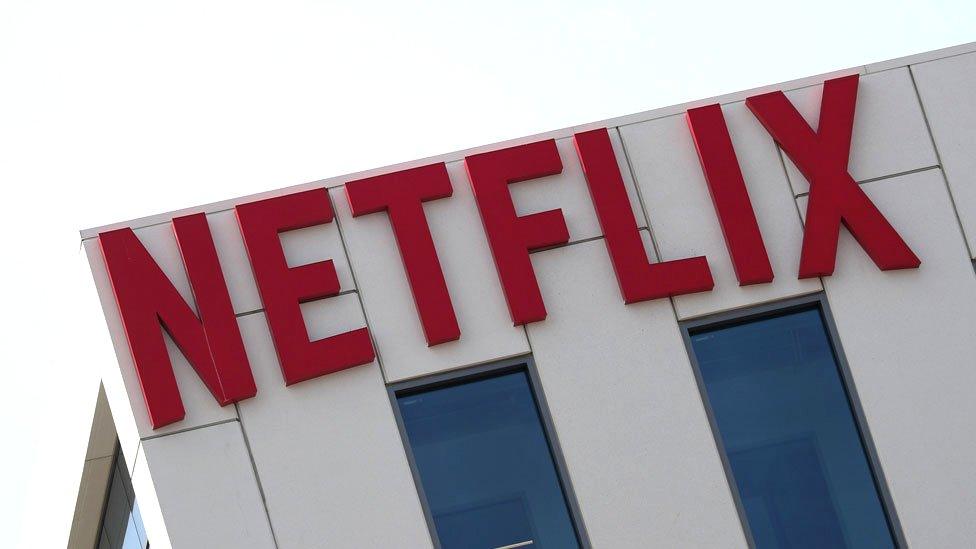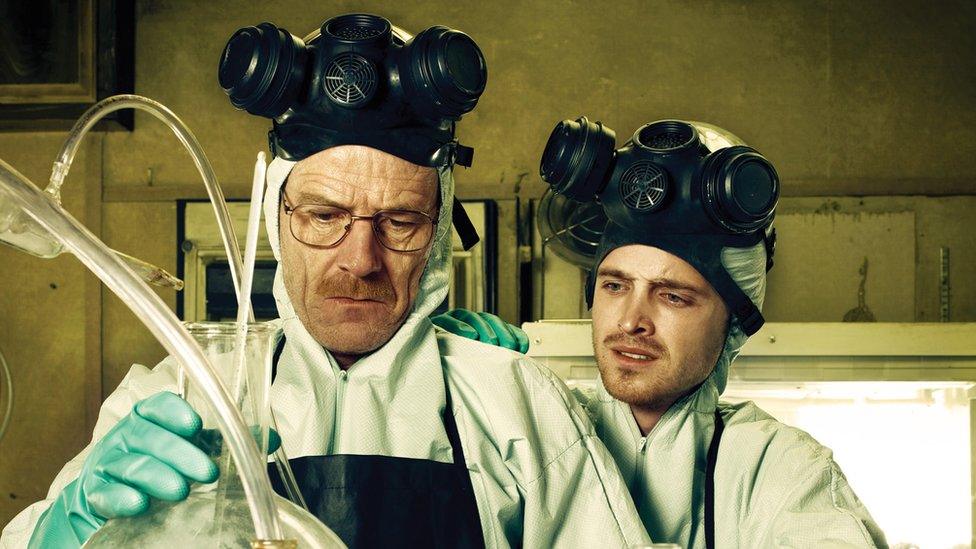The Innocents: How Netflix series explores teenage life by shapeshifting
- Published
Actors Sorcha Groundsell and Percelle Ascott on The Innocents, Netflix's latest drama.
Who would you shapeshift into given the choice?
For Percelle Ascott, the star of Netflix's new series The Innocents, which deals with the issue of morphing into the body of somebody else, the answer is obvious.
"Will Smith," he says instantly. "I just like him as a person, as an individual."
But, he adds diplomatically: "I'd like to shapeshift into any person, to understand a new perspective, and hope that that changes my perspective."
That is very much the theme of The Innocents, which tells the story of a teenage girl - June, played by Sorcha Groundsell - who runs away with her boyfriend Harry (Ascott) to escape her repressive parents.
Things get a little more complicated when she finds she has shapeshifting powers, which she doesn't quite know how to use.
It's a device co-creator and writer Hania Elkington says was the perfect way to explore the difficulties of being a teenager.
"Your body is changing, you're trying to figure out who you are," she tells BBC News.
"Some elements of your emerging personality or psyche might frighten you or feel disconnected from you, so it's about self-acceptance, it's about unconditional love for another person, and shapeshifting seemed a very good way to explore that."
Fellow co-creator Simon Duric adds: "Shapeshifting hadn't been explored, and I'm a bit of a genre hound, and I thought 'oh, there's a gap here'.

Sorcha Groundsell and Percelle Ascott play June and Harry in the shapeshifting series
The series, which is released on Friday, has so far received mostly warm reviews from critics.
"Say hello to your new favourite Netflix show," wrote Ian Sandwell in Digital Spy, external.
"It works because June's struggles as she navigates the perils of first love are relatable, even if her shapeshifter abilities take them to a whole new level.
"Everyone gets a bit jealous, but imagine how it would be if your first love was technically kissing another girl after you shapeshifted into her?"
Suzi Feay of The Financial Times, external was less positive, writing: "From the start, it's so disparate and oblique that it's hard to know what's going on."
Variety, external said the show "gets that sense of dislocation just right," but added its eight episodes could have been "whittled down".
"There's less tension than there is amplification; key points are repeated relentlessly, and the season's overarching plot, involving a cruel doctor (Guy Pearce) who wants to crack the secret within June's genes, has fizzled by season's end."
But Gavia Baker-Whitelaw in The Daily Dot, external said: "The Innocents is one of the best Netflix Originals to date, partly because it lacks the structural pitfalls of so many other streaming shows.
"With its self-contained episodes, sweeping Northern European locations, and a moody score by composer Carly Paradis, this could easily be airing as a primetime BBC serial."

Sorcha, who grew up in Lewis in the Western Isles, is new to the world of high profile TV series, says she is going to try to avoid reading critics' comments.
"I've never done anything that will be as reviewed as this. I think the last time I had anything to read of a review I was about 16 and I was just excited to be in it," she laughs.
"I personally think I won't [read them], just because it can distract from what you feel happy with, you don't want that to then cast a shadow."
Percelle says the key thing he hopes audiences pick up on is "the theme of identity".
"That's a massive part of the show, and how shapeshifting is used as a device to explore that. Trying to find out who you are. Being comfortable in our own skin.
"We shift in our everyday life, we evolve depending on the circumstances. And it's a question of who we are based on this new dynamic, this new experience, and trying to search for that, I don't think we ever stop searching for who we are in life."
Executive producer Elaine Pyke says she was hooked in by the show's script when she first read it, and helped Hania and Simon develop the show and pitch it to Netflix.
"I was compelled by it, I was moved by it, and I know that that combination is something you just don't read that often, she says.
"I fell in love with it very quickly. And," she laughs, "I didn't want to lose it to another producer."
In some ways, launching it on Netflix means pressure is high, with the company's seemingly endless stream of runaway hits.

Stranger Things and 13 Reasons Why are among the shows to have set a high bar for subsequent dramas, with both developing huge followings and creating breakout stars.
But there's one thing that makes it far less stressful than launching it on a traditional TV channel.
"We won't get viewing figures," Elaine explains. "We'll get feedback from Netflix about how it's been received, and I definitely feel a certain pressure and a certain stress about it, I want it to land and for lots and lots of people to watch it.
"But what I think is really different is you haven't got that overnight, all the pressure on one episode, you've got the whole series and are standing by the whole show."
One way Sorcha manages to escape the pressures of a major TV series, is by helping out on her parents' farm in the Outer Hebrides.
"For me it's the best possible way to manage this craziness, because it means I can leave London, leave the industry and go back home and be around people who have never heard of Netflix and don't have strong enough wi-fi to stream in any way," she says.
"It's sheep and cows and badgers and ducks and it's nothing to do with this, which I personally really love, it can get quite stressful and quite crazy so it's nice to be able to have a break."
- Published18 July 2018

- Published18 July 2018
